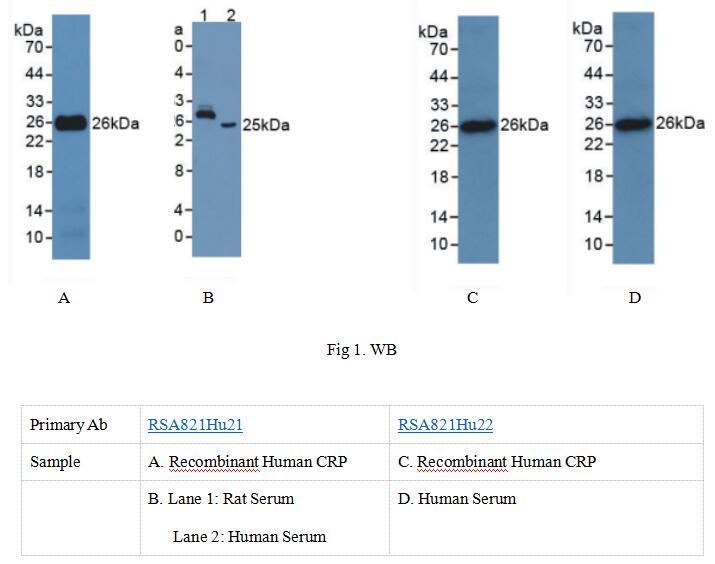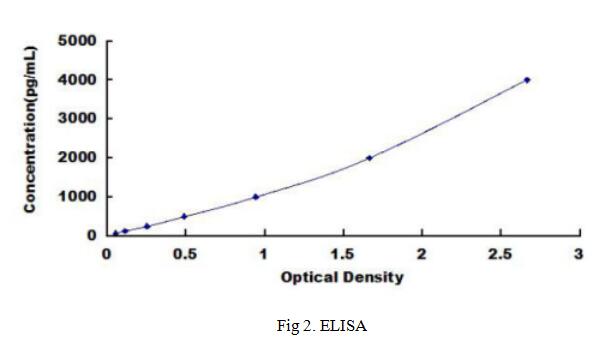C Reactive Protein, is it just a Bio-maker of Inflammation?
It is known that the blood routing tests and one of them is C reactive protein(CRP) test. But who knows what CRP and its clinical significance is? CRP is a protein which is produced by liver, it has 224 amino acids and the monomer molecular mass of 25kDa. CRP can bind C polysaccharide on the surface of bacteria to form a complex to activate the classical complement pathway, which allows body to obtain the ability by nonspecific immune pathway to resist various bacteria, fungi and parasites, etc. In normal individuals, the CRP level in blood ranges from 800 to 80000ug/L. And for organism with acute infection, serious injury or malignant tumor, the CRP level will rise dramatically in the next 6-8 hours, from tens-folds to thousands-folds. Its growth rate is positively correlated with severity of inflammation and disease. Along with the recovery of disease, its level will be down to normal level. Commonly, the CRP level decreases after 48 hours and continuously increased CRP level indicates no improvement after treatment or treatment failure.
As a marker for acute inflammation, CRP monitoring is widely used in the clinical field, including rapid diagnosis of various acute infectious diseases, such as pneumonia, bronchitis, appendicitis, acute pancreatitis, pelvic inflammation, meningitis and so on, the guidance of antibiotics application, prediction of cardiovascular diseases, prevention of myocardial infarction, monitoring postoperative infection and evaluation of the disease degree and prognosis, etc.
For the important clinical significant of CRP, kinds of rapid, simple and reliable detection methods have been established, including immunoturbidimetry, labeled immunoassay (RIA, ELISA, CLIA, ect.), immunochromatography, biosensors and biochips and so on. The serial CRP detection kits have good clinical value and economic value as they can not only provide the important basis for early diagnosis and treatment, but also guide the scientific use of antibiotics.
The clinical detection methods for CRP are all based on antigen-antibody specific reaction. Obviously, the antibodies specific to CRP are the core materials to produce the clinical detection kits for CRP. The high-quality antibodies can guarantee the effectiveness and sensitivity of CRP detection.
Cloud-Clone Corp. has obtained two monoclonal strains RSA821Hu21 and RSA821Hu22 with the protein expression platform and antibody preparation platform. They can specifically recognize the CRP in biological samples and be used to produce the clinical detection tools for CRP measurement. As IVD raw material, the antibodies should be strictly tested to guarantee the specificity and effectiveness. The WB images (shown in fig. 1) show RSA821Hu21 and RSA821Hu22 can specifically measure the CRP level in serum samples. From the antibody pairing screening test (shown in fig. 2), RSA821Hu21 can be used as the capture Ab and RSA821Hu22 can be used as detection Ab in sandwich immunoassay. The RSA821Hu21 and RSA821Hu22 can be used separately to develop CRP detection kits for clinical use, as well used as antibody pair to promote the effectiveness and accuracy of detection kits.


Purified antigen and natural samples were tested in ELISA with pairing antibodies of RSA821Hu21 (Capture Ab) and RSA821Hu22 (Detection Ab).
Besides CRP monoclonal Ab, Cloud-Clone Corp. has pushed out the other IVD raw materials, including RSA228Hu01 antibody specific to AMH - biomarker of ovarian dysfunction, RSA519Hu21 & RSA519Hu22 antibodies specific to APOA1 - biomarker of cardiovascular disease and RSA478Hu21 & RSA478Hu22 antibody specific to TNNI3-biomaker of acute myocardial infarction. No matter what you have met when using our products, please contact us. We will try our best to lend a hand.
More products, please visit www.cloud-clone.com.
